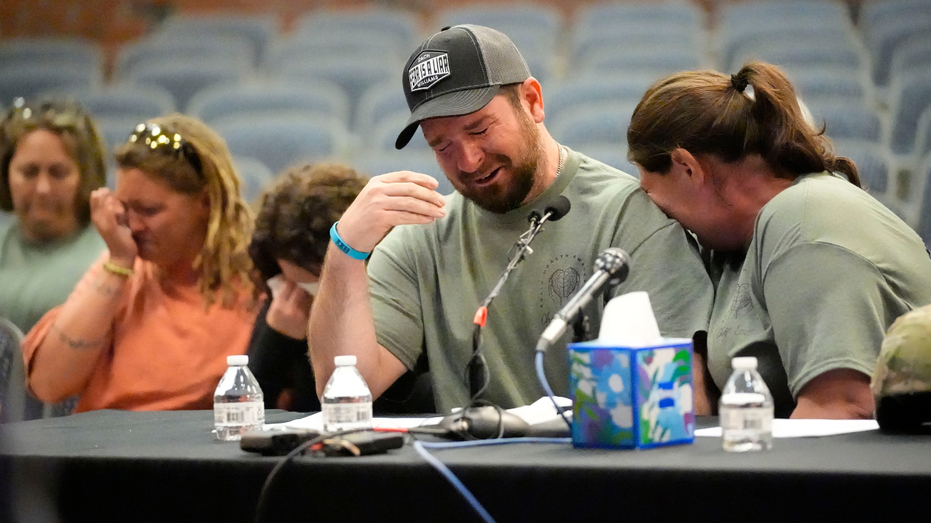Mass shooter's family identifies missed warning signs before massacre left 18 dead, vows to raise awareness
Maine mass shooter Robert Card's family members are working to bring awareness to traumatic brain injuries, one year after the Army reservist fatally shot 18 people.

One year after Army reservist Robert Card fatally shot 18 people and wounded 13 others in Lewiston, Maine, his family members are working to bring awareness to traumatic brain injuries.
Card, a firearms and hand grenade instructor, had documented mental health problems before he opened fire on a bowling alley and a bar and grill using a Ruger SFAR on Oct. 25, 2023. Authorities located him two days later with a self-inflicted gunshot wound to the head.
"We want to make sure this doesn't ever, ever happen again to another family." Nicole Herling, Card's sister, told NBC News in an interview published Tuesday.
Herling and her husband James have spoken publicly about their family's efforts to flag Card's mental illness prior to the massacre, which was Maine's deadliest mass shooting.
MAINE SHOOTING: ROBERT CARD'S NOTE TO LOVED ONES AND FINAL MOVEMENTS REVEALED
Family members tried to call a veterans' crisis hotline, as well as Card's military base, to get help.
A month before the massacre, local law enforcement even responded to Card's residence after receiving reports from his family, but officers did not make contact, according to NBC.
A fellow Army reservist even told his superiors on Sept. 15 that he thought Card was "going to snap and do a mass shooting," according to testimony from Card's family during a hearing before Maine's legislature in May as part of an independent investigation into the mass shooting.
Researchers studied Card's brain after the shooting and determined that he had severe traumatic brain injuries.
His family said during the May hearing that researchers told them it was "one of the worst" cases of traumatic brain injuries they had seen, with Card potentially being exposed to thousands of explosions over the course of his career as a hand-grenade instructor, according to NBC.
MAINE MASS SHOOTING SUSPECT ROBERT CARD FOUND DEAD WITH APPARENT SELF-INFLICTED GUNSHOT WOUND
The Herlings are working on starting a nonprofit organization, called Rising Over Brokenness, to educate the public on the dangers of brain injuries.
"We had recognized that we needed to help other families, especially once we realized that Robbie's brain had been compromised," James Herling told NBC anchor Lester Holt.
MAINE POLICE AUDIO DESCRIBES FRANTIC MASS SHOOTING RESPONSE: 'MULTIPLE VICTIMS'
The Herlings have also listed the names of all 18 victims of the shooting on the walls of their home. They also have all 18 names lining their property with blue hearts, according to NBC.
"I don't ever want to talk about Robbie without acknowledging the pain that he's caused to other people," Nicole Herling said.
The U.S. Department of Defense (DOD) in August announced a Warfighter Brain Health Initiative that will focus on "identifying and implementing best practices to promote overall brain health and countering traumatic brain injury, including efforts to mitigate blast overpressure risks for service members."
CLICK HERE TO GET THE FOX NEWS APP
On Oct. 15, the families of 100 survivors and victims of the Oct. 25, 2023 mass shooting served a legal notice expressing their intent to sue the DOD, Army and Keller Army Community Hospital for "negligence in failing to respond to warning signs and an explicit threat to commit a mass shooting, from Army Reserve Sergeant Robert Card," according to attorney Travis Brennan.
What's Your Reaction?

















